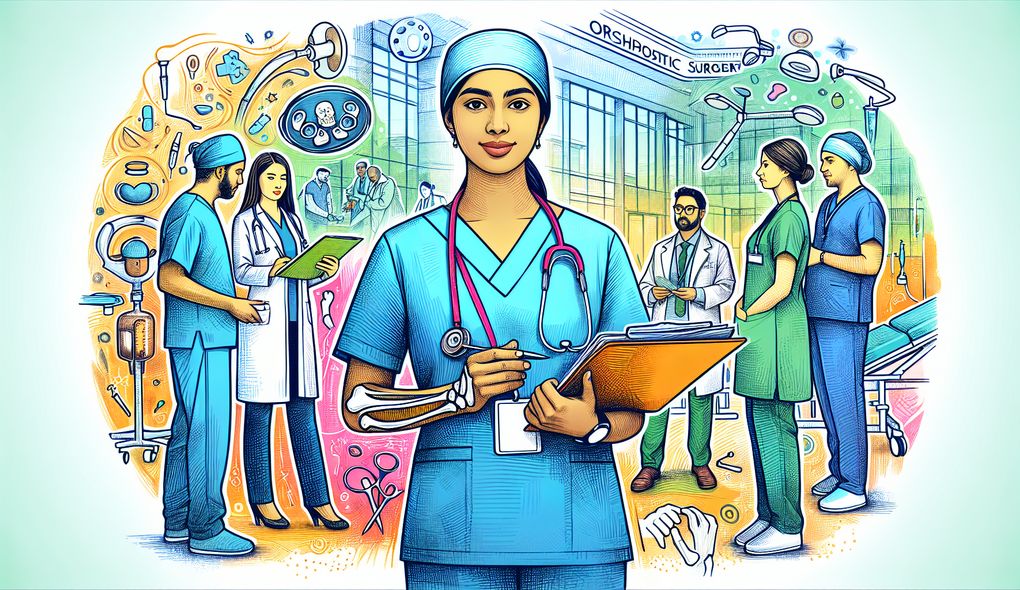Tell me about a time when you had to handle a medical emergency during a surgical procedure. What actions did you take?
INTERMEDIATE LEVEL

Sample answer to the question:
During a surgical procedure, I had to handle a medical emergency when a patient experienced a sudden drop in blood pressure. I quickly assessed the situation and determined that the patient was going into shock. I immediately activated the emergency response team and began administering intravenous fluids to stabilize the patient's blood pressure. I also monitored their vital signs closely and communicated with the surgeon about the situation. The patient's condition gradually improved, and I continued to provide close monitoring and support until they were stable. After the procedure, I documented the incident and debriefed with the team to identify any areas for improvement.
Here is a more solid answer:
During a surgical procedure, I encountered a medical emergency when a patient developed cardiac arrest. I immediately initiated cardiopulmonary resuscitation (CPR) while instructing a nurse to activate the emergency response team. As the team arrived, I quickly communicated the patient's condition, vital signs, and the sequence of events leading to the event. Together with the team, we successfully managed to resuscitate the patient. I then coordinated with the surgeon to determine the next steps in the procedure, ensuring patient safety and minimizing any potential complications. After the incident, I thoroughly documented the event and participated in a debriefing session to identify any areas for improvement.
Why is this a more solid answer?
The solid answer expands on the basic answer by providing specific details of encountering cardiac arrest and initiating CPR. It also demonstrates the candidate's ability to handle high-stress situations and make quick decisions by effectively communicating with the emergency response team and coordinating with the surgeon. The answer addresses the evaluation areas more comprehensively, but it could still provide more insight into the candidate's problem-solving skills and collaboration within the multidisciplinary team.
An example of a exceptional answer:
During a surgical procedure, I faced a medical emergency when a patient experienced an immediate postoperative hemorrhage. Recognizing the severity of the situation, I swiftly assessed the patient's vital signs and notified the surgical team. While applying direct pressure to the hemorrhaging site, I coordinated with the anesthesiologist to administer blood products to restore the patient's blood volume. Simultaneously, I updated the surgeon on the ongoing situation and assisted in locating the source of bleeding intraoperatively. Through effective teamwork and coordination, we successfully controlled the bleeding and stabilized the patient. Following the emergency, I actively participated in a thorough incident analysis to implement preventive measures and enhance patient safety in future cases.
Why is this an exceptional answer?
The exceptional answer goes above and beyond by introducing a more complex medical emergency scenario involving immediate postoperative hemorrhage. It highlights the candidate's high level of clinical skills and ability to handle high-stress situations. The answer also emphasizes effective communication and collaboration with the surgical team, anesthesiologist, and surgeon. Additionally, it showcases the candidate's critical thinking and problem-solving skills by actively participating in an incident analysis to improve patient safety. The exceptional answer fully covers the evaluation areas and aligns with the requirements of the job.
How to prepare for this question:
- Familiarize yourself with emergency protocols and procedures specific to orthopedic surgery.
- Review case studies or medical literature related to emergency situations in surgical procedures.
- Practice scenarios involving medical emergencies during surgical procedures, focusing on your decision-making process.
- Reflect on past experiences handling high-stress situations and think about how you could further improve your response.
- Consider seeking additional certifications or training in advanced life support techniques to enhance your skill set.
What are interviewers evaluating with this question?
- Clinical skills
- Interpersonal and communication skills
- Critical thinking and problem-solving skills
- Ability to handle high-stress situations
- Ability to make quick decisions

